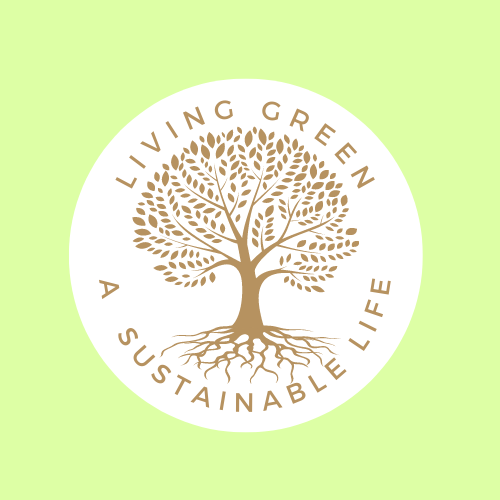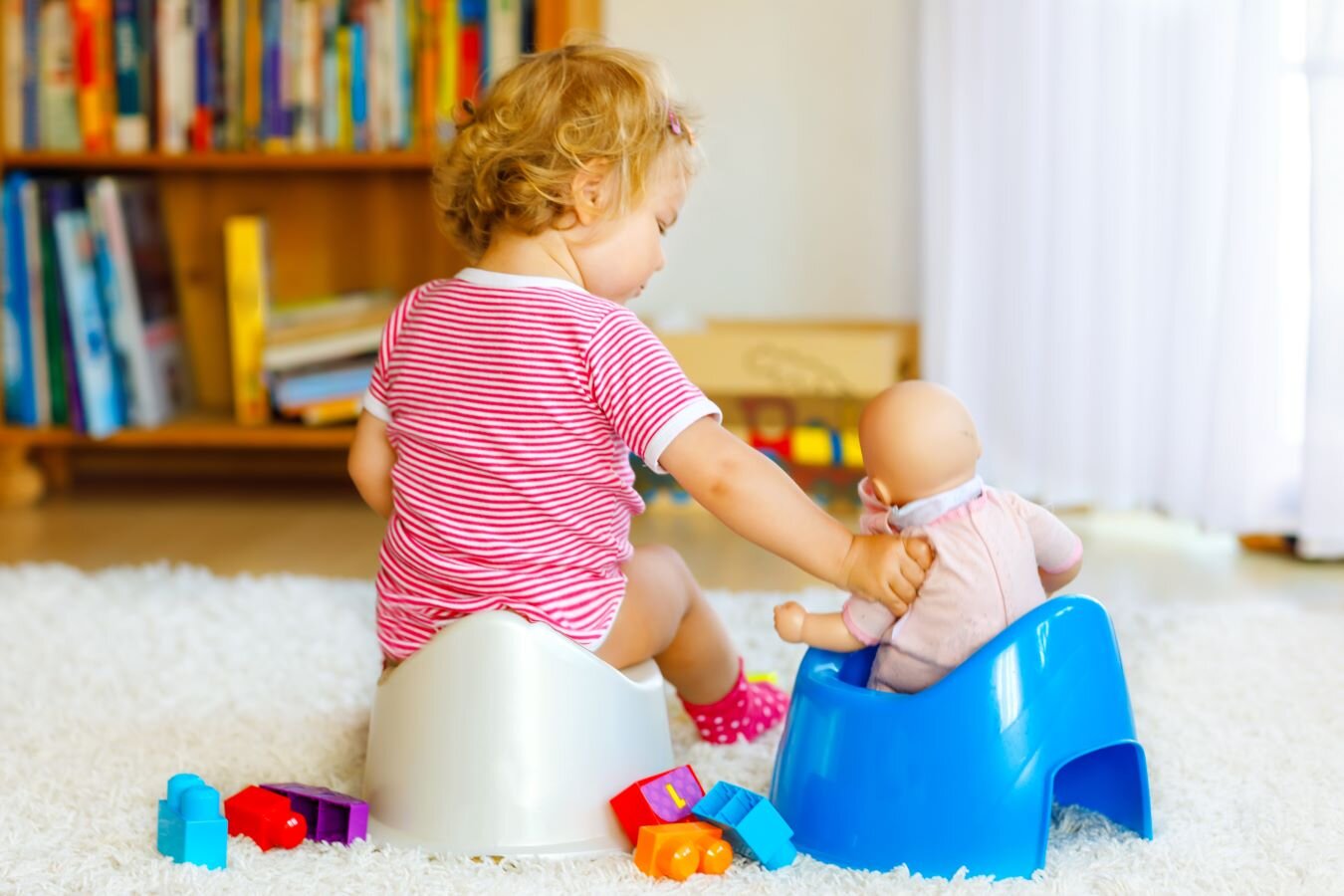Do Cloth Diapers Aid Potty Training?
Two years and 4 months. That’s when my daughter potty trained. Totally average. Did the fact she was in cloth nappies mean she potty trained early? We’ll never know that of course, however, there are proven advantages to using cloth nappies through the potty training period.
Cloth nappies can help potty training at an earlier age because your child will notice the wet feeling more in a cloth diaper than a disposable, aiding them to develop awareness, and the connection of a full bladder followed by a wet nappy.
My health visitor actually advised me to put pants on my daughter under her nappy to help with the wet feeling and encourage potty training. I told her about our cloth nappies and she said “well the pants are not necessary then.”
Since the 1950’s the average age a child potty training has gone from 12-18 months too 3 years. Why? Well there could be two reasons for this. Cloth nappies were a lot more work even just a few decades ago so most parents rushed to potty train for an easier life.
The introduction of “easy” disposables and later modern washing machines, making using cloth nappies just as easy, enabled parents to relax about potty training.
There is also the factor that during the 1960’s not long after the first disposable nappies hit the market the child-oriented approach to potty training was introduced. “The notion of waiting until a child is “physically, mentally and emotionally ready” emerged.” This was very much encouraged by the disposable nappy industry. Because they cared about when children potty trained and the effects it had on them or because the the average age of potty training double therefore doubled their sale. The sinic in me says the later.
What is the average a child in cloth nappies potty trains?
There is no hard evidence on the average age a child who wears cloth nappies potty trains compared to a child in disposables, just that it is commonly agreed amongst parents that cloth nappies can ‘aid’ in potty training.
Another factor involved with cloth nappies and potty training is that most cloth nappy parents change more often and are more aware when a nappy is wet compared to disposables that hide wetness. This could mean that parents using cloth nappies will notice sooner when they child is holding their bladder for longer stretches of time.
Do I need to move on to pull ups when my child is potty training?
You do not need to switch to pull ups with potty training unless it’s something you want to do and find easier. By 2 years most children can remove the Velcro or poppers on nappies anyway. It is however important if using cloth not to switch to disposable pull up nappies as it could interrupt your potty training process.
When I mentioned potty training to my child’s nursery teacher she asked me if I would move on to pull up rather than cloth. I politely said no but was of course adamant in my head we would not do this. The gel in disposables is designed to leave your child feeling bone dry. As Reeva was now used to the wet feeling and asking to be changed when wet I felt disposables would be a major set back.
You can of course buy cloth pull ups that look very much like pants, these will absorb any accidents and give “insurance”. These are also good if you feel they phycologically help your child “wearing big boy/girl pants” for example but I also feel if you need these perhaps you child may not be ready. Once they are ready the time you will use these pants is very small so it is more than likely going to be a waste of money.
Personally I think the odd accident is not a problem. If they wet when out and about just make sure you always carry spare pants and trousers. You’ll have to wash them in the same way you would the pants after all.
If you do decide you want to give training pants a go, the best and most reasonably priced I found are below.
Top 3 Reusable Potty Training Pants.
Is it too late to start using cloth diapers if you child is close to potty training?
It’s never too late to start using reusable diapers even if you think your close to potty training, though of course the earlier you start using them the more money you will save. Reusable diapers would be the more expensive option if your only going to use them for a few months. However there are lots of ways you can make the invest worthwhile and less expensive.
Don’t buy too many. Two part systems like close parent nappies mean you can reuse the outer shells serval times replacing just the inserts. This mean you need less, saving money.
Remember you’ll use them for night time for a while yet. Your child may be close to potty training but it is likely they won’t be dry at night for a while. This means you’ll still be able to use your cloth nappies and will save on nappies heading to landfill.
They could be used for another child. If your planning another baby they could be used for another. If not they could be passed on to another child or sold on.
Buy secondhand. The secondhand market is big when it comes to reusables. Head to “Navigating the Pre-loved Cloth Nappy Market” for help.
How to know your child is ready for potty TRAINING.
If you think your child is showing signs of potty training then your instinct is probably right.
Signs such as telling you their nappy is wet, mimicking you when you go to the toilet, showing interest in the potty and holding their wee for longer could all mean they are ready to give potty training a go.
Tips for potty train with cloth nappies.
1. Become aware of when they wee.
A benefit of using cloth nappies is that it is easier to become aware when your child is wetting or holding their bladder. For example I would notice my daughters first nappy of the day would become wet very quickly. This alerted me to the fact she was holding her wees in the morning and then flooding her fresh nappy. I therefore would sit her on the potty straight after removing her night nappy to help her understand when she needed to go.
2. Encourage nappy free time when your at home.
It’s not something we did constantly, enforcing on her, but having nappy free time and offering the potty really helped my daughter understand when she needed to go.
Many people talk about a toilet training 3 day boot camp which if that works for you is great, but I thought this was how it had to be done. However basing ourselves at home for that period and focusing fully on it was just not for me. The slow and gentle approached worked a treat for us.
3. Ask them how their nappy feels.
When you change their nappy ask them if it feels wet or not. This will help them build that connection in their brain and understand the wet feeling.
4. Don’t worry about night time.
It is very common for children to be dry in the day but still use nappies at night time for months sometimes year. This is completely normal. Concentrate on becoming dry in the day first and encourage night time dryness later on. The good news about cloth nappies if you’ll still be able to use them at night and not have to buy any more disposables.
In conclusion.
It’s clear that the coloration between the average age of our children potty training doubling is linked to the introduction of disposable nappies but could be more down to the fact they are now not encouraged to use the potty at such an early age. However it is also clear that the wetter feeling felt in reusable nappies helps a child to understand when they need the toilet.
Every child is different.
Remember that every child is different and it is no good comparing your child to another weather they are in cloth nappies or not. I know kids in disposables that were nappy free way before mine in cloth as well as others that took a lot longer in disposables. Plus they all have their little quirks. My daughter for example had been nappy free in the day and doing wees on the toilets for months before she would go for a number 2 on the potty/toilet. Rather waiting until she had a nappy on for bedtime and then going. Even sometimes asking if I would put a nappy on her so she could do a poo. Strange yes, annoying very. Just having everyone ready for bed, stories done, only to have to get up and change her nappy but hey it passed. As does everything with children. I felt it important to not make a big deal out of it or worry her about it.
Good luck in your potty training journey.
Hannah xx
other aticles you might enjoy.
Fight Your MP for Cloth Nappies.
Do Cloth Nappies Affect Crawling or Walking?



